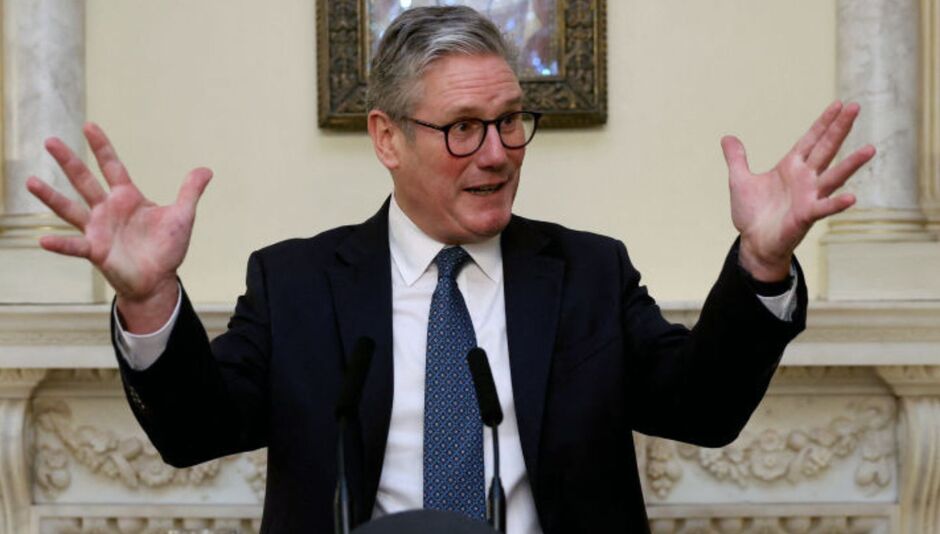Starmer’s Self-Service Revolution: Tax the Nation, Feed the State, and Forget About Growth
With no real plan for economic growth, Labour’s policies promise soaring public spending, stagnant GDP, and an electorate left picking up the tab.
11/6/20242 min read


For all his talk of a “fairer” Britain, Keir Starmer’s economic plan has a glaring omission: actual growth. It’s one thing to tax and spend, but quite another to do so without a hint of a strategy to grow the nation’s economy. Under Starmer’s stewardship, we can expect public sector budgets to balloon and new regulations to keep businesses tied up in endless red tape, while the economy limps along with the sort of half-hearted GDP growth that would barely qualify as an afterthought in a less ideologically-driven agenda.
In a plan strikingly thin on measures that might actually boost productivity, encourage investment, or drive enterprise, Starmer has delivered instead a fiscal wishlist designed to expand the state without expanding the economy. It’s a masterpiece of political theatre: squeezing every last drop from the taxpayer while delivering an economy that, in GDP terms, barely trudges forward. Growth, it seems, has become little more than a background character in Labour’s grand drama—a passing mention rather than a central plot point.
Take the private sector, where innovation and job creation typically thrive. Rather than fostering a climate of opportunity, Starmer’s Britain will burden businesses with taxes designed to feed his government’s endless spending spree. Instead of a roadmap to expand industry and stimulate development, Labour offers a giant “donate here” sign at the Treasury’s door. Starmer seems more interested in coaxing out every possible pound from Britain’s entrepreneurs and workers than in ensuring they have the space or incentive to create wealth. With no support for small businesses, no incentives for tech or green energy, and no policies that would inject dynamism into the economy, the growth “agenda” has become little more than a hollow promise.
It’s a recipe for economic stagnation—public spending without the growth to fund it, leading to a cycle where taxpayers are squeezed ever tighter just to keep up. Meanwhile, the GDP ticks upward at a snail’s pace, kept alive by the bare minimum of activity in a private sector stifled by constant tax demands. Instead of tackling the real issues—sky-high costs of living, stagnant wages, and plummeting productivity—Labour’s policies merely kick the can down the road, hoping the public will applaud the illusion of progress while the economy languishes in reality.
And as GDP flatlines, the voters who put their faith in Labour’s promises of transformation will find themselves facing an economy stuck in the mire, with tax burdens on the rise and public services delivering little beyond bloated budgets and management perks. For a party so keen on spending, the notion of how to fund it sustainably seems to have been conveniently shelved. Starmer has mastered the art of taxing and spending, but he seems blissfully unconcerned with the part that comes after: fostering real, lasting prosperity.
What we’re left with is a budget fit for a government that looks inward, rewarding itself while ignoring the slow bleed of Britain’s economic potential. In a world of high stakes and high costs, Starmer’s vision risks becoming a monument to complacency—an administration happy to grow the state and pile on the spending while GDP crawls along like an afterthought. Britain deserves better than a measly increase in GDP, a growth plan in name only, and a government convinced it can tax its way to prosperity.
